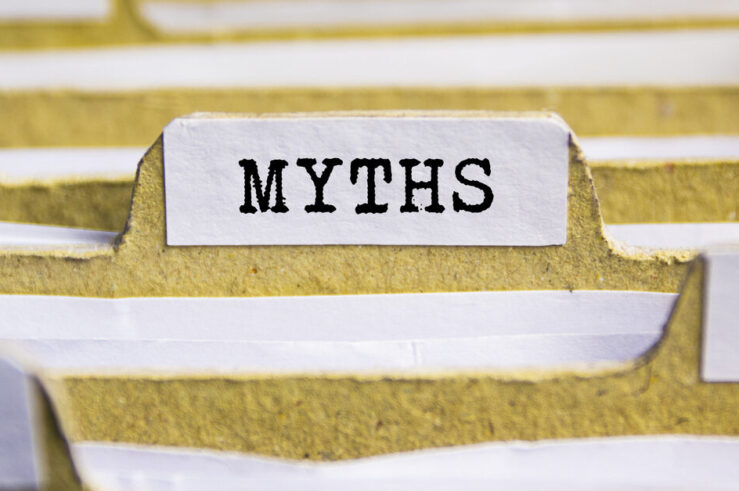Showing results for: “premium natural and organic”
Political Philosophy, Competition, and Competition Law: The Road to and from Neoliberalism, Part 1
The interplay among political philosophy, competition, and competition law remains, with some notable exceptions, understudied in the literature. Indeed, while examinations of the intersection between economics and competition law have taught us much, relatively little has been said about the value frameworks within which different visions of competition and competition law operate. As Ronald Coase ... Political Philosophy, Competition, and Competition Law: The Road to and from Neoliberalism, Part 1
EU Bans Insurer Price Discrimination Based on Gender
From the WSJ: The European Union’s highest court declared illegal the widespread practice of charging men and women different rates for insurance, roiling the industry and setting in motion an overhaul of how life, auto and health policies are written across Europe.Two Belgian men had challenged the higher life-insurance premiums charged to members of their ... EU Bans Insurer Price Discrimination Based on Gender
Why can’t we have a better press corps?: WaPo Google antitrust edition
Steven Pearlstein at the Washington Post asks if it’s “Time to loosen Google’s grip.” The article is an analytical mess. Pearlstein is often a decent business reporter–I’m not sure what went wrong here, but this is a pretty shoddy piece of antitrust journalism. For the most part, the article is a series of tired claims ... Why can’t we have a better press corps?: WaPo Google antitrust edition
The Economics of Celebrity Endorsements
Bob Greene (CNN) argues that celebrity endorsements are meaningless. Worse than that, according to Greene, celebrity endorsements necessarily amount to a raw deal for consumers: This is all elementary. If someone accepts cash in exchange for offering a positive evaluation of something, then the evaluation must be tossed out. It’s worse than meaningless. Yet in ... The Economics of Celebrity Endorsements
Franchising, Starbucks vs. Subway, and Promotional Services
Professor Bainbridge offers a correction to Keith’s Starbucks analysis by pointing out that Starbucks does not have franchisees. I don’t think the franchise/ franchisee distinction has much to do with Keith’s conclusion that whatever is going on is not an antitrust problem. But the Professor is on to a really cool question about franchising and ... Franchising, Starbucks vs. Subway, and Promotional Services
Are You Plane Rich? An Example of Marginal Analysis
I just returned from a long weekend in the Caribbean, attempting to recreate the scenery of (and a few scenes from) The Bachelor. Given the ubiquity of Wi-Fi coverage, I was able to stay connected with my favorite newspapers and magazines: iPhone in one hand, Mojito in the other. Just as I was feeling like ... Are You Plane Rich? An Example of Marginal Analysis
Regulation Magazine Cover Article: “How the Supreme Court Doomed the ACA to Failure”
My recent essay, How the Supreme Court Doomed the ACA to Failure, is the cover article of the current issue of Regulation Magazine. I’ve been over the essay’s basic points several times (e.g., here, here, and here), so I won’t belabor them now. My basic assertions are: The Affordable Care Act (ACA) provisions mandating both “guaranteed issue” (insurers must sell to everyone) and ... Regulation Magazine Cover Article: “How the Supreme Court Doomed the ACA to Failure”
10 Things the American Innovation and Choice Online Act Gets Wrong
The Senate Judiciary Committee is set to debate S. 2992, the American Innovation and Choice Online Act (or AICOA) during a markup session Thursday. If passed into law, the bill would force online platforms to treat rivals’ services as they would their own, while ensuring their platforms interoperate seamlessly. The bill marks the culmination of ... 10 Things the American Innovation and Choice Online Act Gets Wrong
Does Apple’s “Discrimination” Against Rival Apps in the App Store harm Consumers?
A spate of recent newspaper investigations and commentary have focused on Apple allegedly discriminating against rivals in the App Store. The underlying assumption is that Apple, as a vertically integrated entity that operates both a platform for third-party apps and also makes it own apps, is acting nefariously whenever it “discriminates” against rival apps through ... Does Apple’s “Discrimination” Against Rival Apps in the App Store harm Consumers?
Robert Crandall on We Need More Lawyers!
Several years ago, when Cliff Winston and I began looking at the incomes earned by lawyers, we were struck by several facts. First, after accounting for age, years of education, experience and various other demographic influences, we found that the income premium earned by lawyers had increased by about 50 percent between 1975 and 2004, ... Robert Crandall on We Need More Lawyers!
Navigating the AI Frontier, Part I
The European Union is on the verge of enacting the landmark Artificial Intelligence Act (AI Act), which will—for better or worse—usher in a suite of new obligations, and hidden pitfalls, for individuals and firms trying to navigate the development, distribution, and deployment of software. Over the coming months, we will be delving into the nuances ... Navigating the AI Frontier, Part I
The “Common Law Property” Myth in the Libertarian Critique of IP Rights (Part 1)
In libertarian critiques of intellectual property (IP) rights, such as copyrights and patents, it’s common to the hear the claim that “traditional property rights in land” is based in inductive, ground-up “common law court decisions,” but that IP rights are top-down, artificial statutory entitlements. Thus, the argument goes, property rights in land are rooted solely ... The “Common Law Property” Myth in the Libertarian Critique of IP Rights (Part 1)








